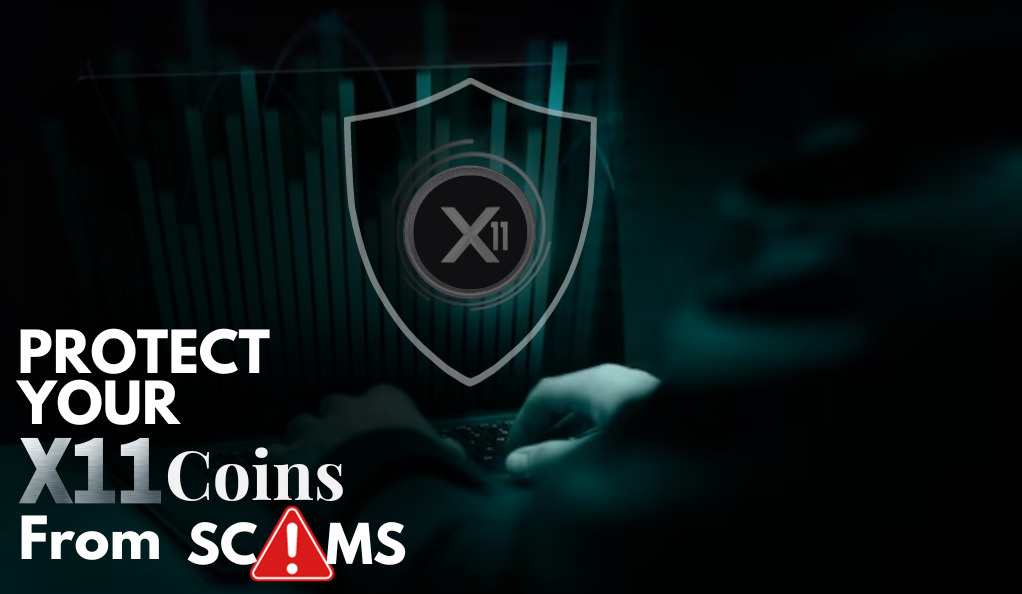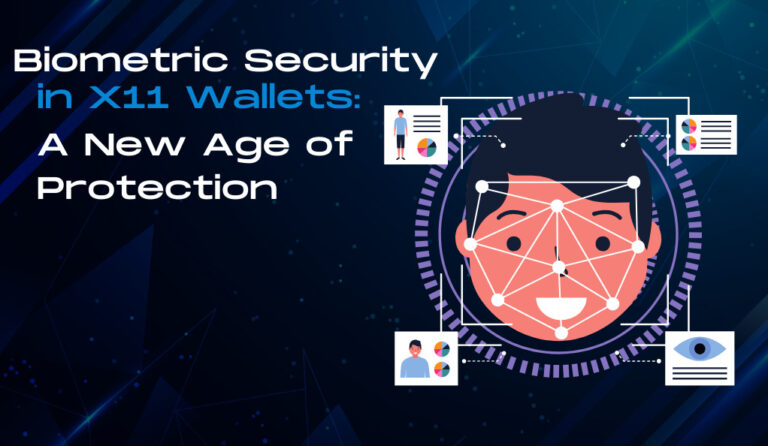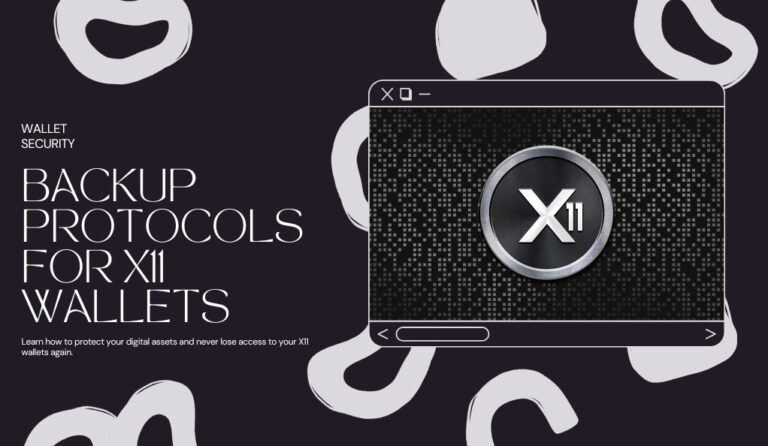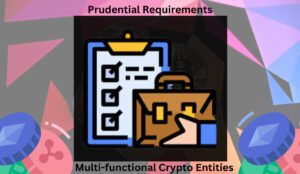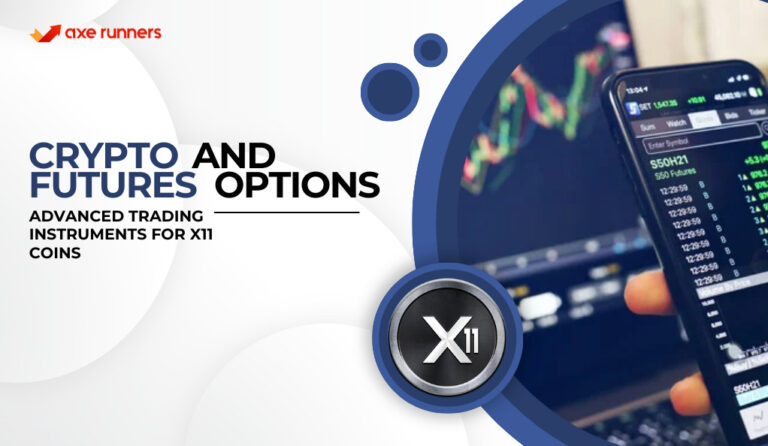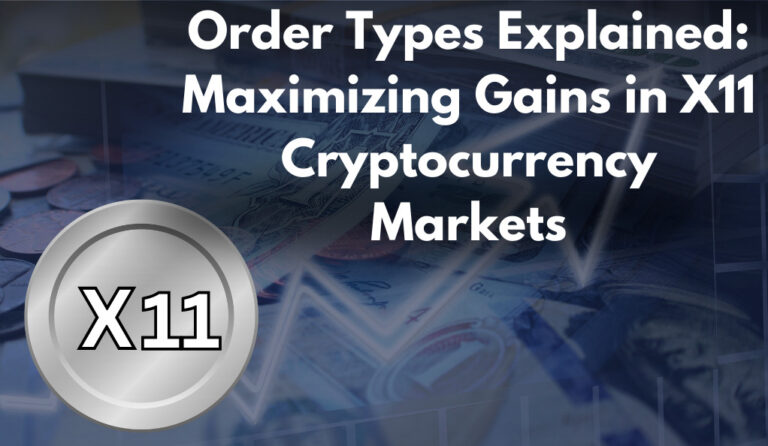Investing in X11 coins can be a rewarding venture, but it comes with its share of risks, particularly in the form of scams and theft. The decentralized nature of cryptocurrencies and the relative anonymity they offer make them an attractive target for malicious actors. In this comprehensive guide, we will delve into the strategies and precautions that every X11 coin investor should employ to safeguard their assets from scams and theft.
Understanding X11 Coin Scams
Before we explore the protective measures, it’s essential to have a clear understanding of the types of scams that can threaten your X11 coin investments. These scams often leverage the anonymity and decentralization of cryptocurrencies to deceive investors. Here are some common X11 coin scams:
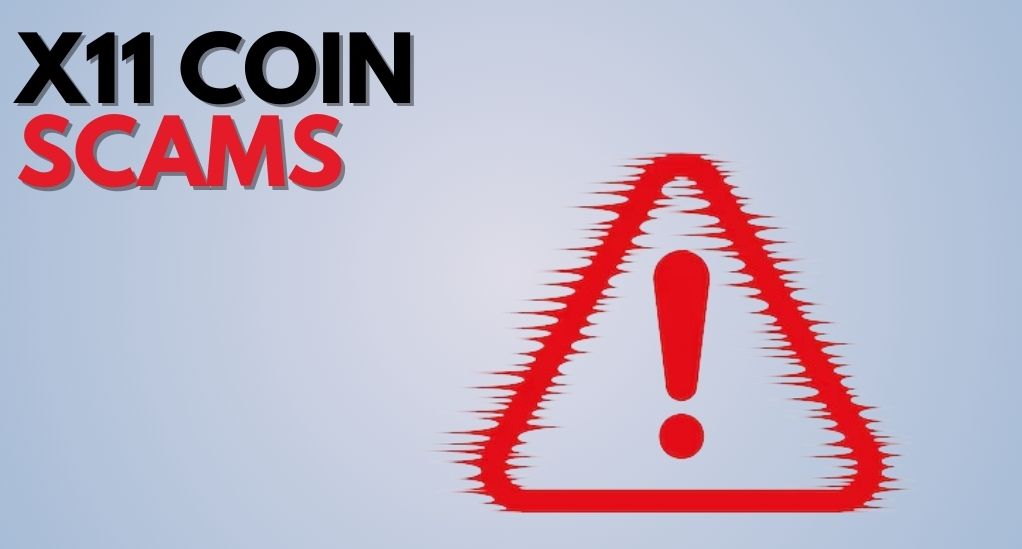
1. Ponzi Schemes
Ponzi schemes promise high returns on investment but rely on funds from new investors to pay returns to earlier investors. These scams eventually collapse when the operator can no longer attract enough new investors.
2. Fake Wallets and Exchanges
Malicious actors create counterfeit wallet apps and exchange platforms that appear legitimate. Unsuspecting users deposit their X11 coins, only to have them stolen or lost.
3. Pump and Dump Schemes
In these schemes, fraudsters artificially inflate the price of a particular X11 coin by spreading false information or rumors. Once the price has surged, they sell their holdings, causing the price to plummet, leaving other investors with losses.
3. Phishing Attacks
Phishing attacks involve tricking individuals into revealing their private keys or login credentials by posing as trustworthy entities through emails, websites, or social media.
4. Fake ICOs (Initial Coin Offerings)
Fraudulent initial coin offerings promise innovative projects but disappear with investors’ funds once they’ve raised a significant amount.
5. Social Engineering
Scammers use psychological manipulation to gain access to your private keys or wallet information. They may impersonate trusted individuals or use emotional tactics to convince you to share sensitive data.
Understanding these scams is the first step in protecting yourself against them. In the following sections, we will delve deeper into strategies to identify and avoid these threats effectively. By the end of this guide, you’ll be equipped with the knowledge and tools to secure your X11 coin investments and navigate the crypto landscape with confidence.
Spotting Red Flags: How to Identify Scams
Now that we have an understanding of the various scams that can threaten X11 coin investors, the next crucial step is learning how to spot the red flags associated with these scams. Being vigilant and able to identify potential threats can significantly reduce your risk of falling victim to fraudulent schemes. Here are key strategies to help you recognize scams:
1. Conduct Thorough Research
Before investing in any X11 coin project, take the time to research it thoroughly. Look for credible sources of information, such as the project’s official website, whitepaper, and community forums. Be cautious of projects that lack transparency or offer vague details about their goals and technology.
2. Check Team Credentials
A legitimate project will have a team of experienced and qualified individuals behind it. Verify the credentials of the team members by checking their professional backgrounds and online profiles. Be wary if team members have no online presence or if their information seems fabricated.
3. Verify Partnerships and Backing
Some scams claim to have partnerships with reputable companies or organizations to gain credibility. Verify these partnerships by checking official announcements from the alleged partners. Beware of projects that make unverified claims.
4. Assess Tokenomics
Examine the tokenomics of the project, including the total supply, distribution plan, and use of funds. Be cautious if the distribution plan disproportionately benefits the project team or if there is no clear plan for the use of funds.
5. Avoid FOMO (Fear of Missing Out)
Scammers often create a sense of urgency by encouraging investors to act quickly to secure their investments. Don’t succumb to FOMO. Take your time to make informed decisions, and be skeptical of projects that pressure you to invest immediately.
6. Beware of Unsolicited Offers
Be cautious of unsolicited offers and messages. Scammers may contact you through email, social media, or private messages, offering investment opportunities that seem too good to be true. Delete or report such messages and do not engage.
7. Use Reputable Exchanges
When buying or trading X11 coins, use reputable and well-known cryptocurrency exchanges. These platforms typically have stringent security measures and perform due diligence on listed tokens.
By adopting these strategies and remaining cautious, you can significantly reduce the risk of falling victim to X11 coin scams. In the next sections of this guide, we will explore additional security measures to protect your assets, including choosing the right wallet for your X11 coins and secure storage practices.
Choosing the Right Wallet for X11 Coins
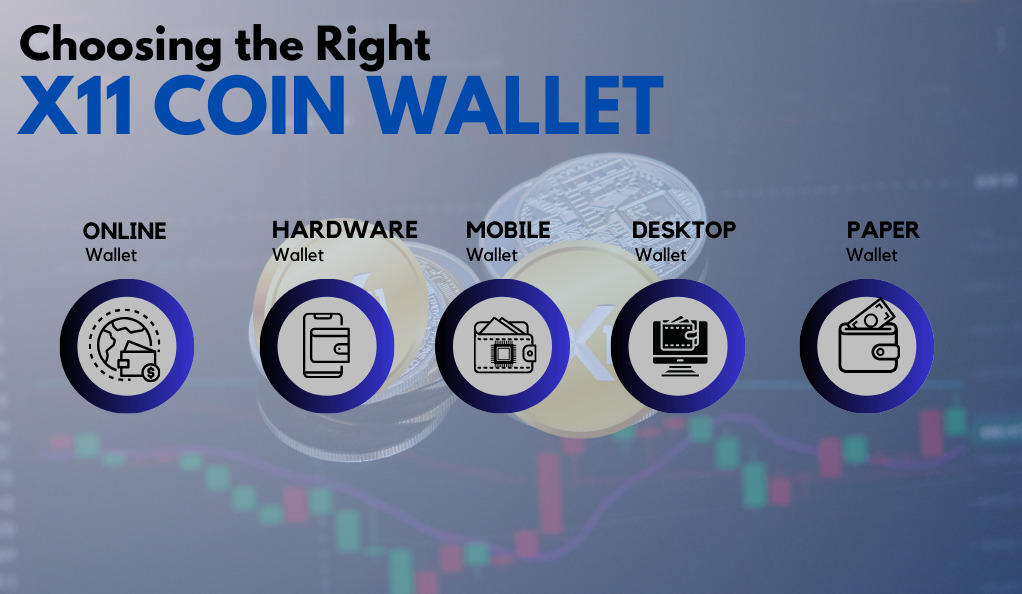
Selecting the right wallet for your X11 coins is a critical aspect of safeguarding your investments. Different types of wallets offer varying levels of security, accessibility, and convenience. Here, we’ll explore the key considerations when choosing an X11 coin wallet:
Hardware Wallets
Hardware wallets are considered one of the most secure options for storing X11 coins. These physical devices store your private keys offline, making them highly resistant to online threats. Some popular hardware wallets that support X11 coins include Ledger Nano S and Trezor.
Software Wallets
Software wallets, also known as desktop wallets, are applications that you install on your computer. While convenient, they are more susceptible to malware and hacking attempts. Ensure you download wallet software from official sources and keep your antivirus software up to date.
Mobile Wallets
Mobile wallets are apps designed for smartphones. They offer convenience for making on-the-go transactions but may not be as secure as hardware wallets. Only use mobile wallets from reputable developers and ensure your phone is adequately protected with security features like PIN or biometrics.
Paper Wallets
Paper wallets involve printing your private key and public address on a physical piece of paper. This method keeps your assets entirely offline but requires careful handling to prevent physical loss or damage.
Web Wallets
Web wallets are online platforms that allow you to access your X11 coins from any device with an internet connection. Use web wallets cautiously, as they are vulnerable to hacking and phishing attacks. Enable two-factor authentication (2FA) for added security.
Consider Multi-Currency Support
If you hold various cryptocurrencies, consider a wallet that supports multiple currencies. This can simplify management and reduce the number of wallets you need to maintain.
User Experience and Reputation
Research the user experience and reputation of the wallet you choose. Read user reviews, check for any security incidents in the wallet’s history, and ensure it has an active and responsive support team.
The choice of wallet ultimately depends on your preferences and security requirements. Many investors opt for a combination of wallets, using a hardware wallet for long-term storage and a software or mobile wallet for day-to-day transactions. Regardless of your choice, remember to follow best security practices, such as regular backups and keeping your private keys safe.
Storing Your X11 Coins Safely
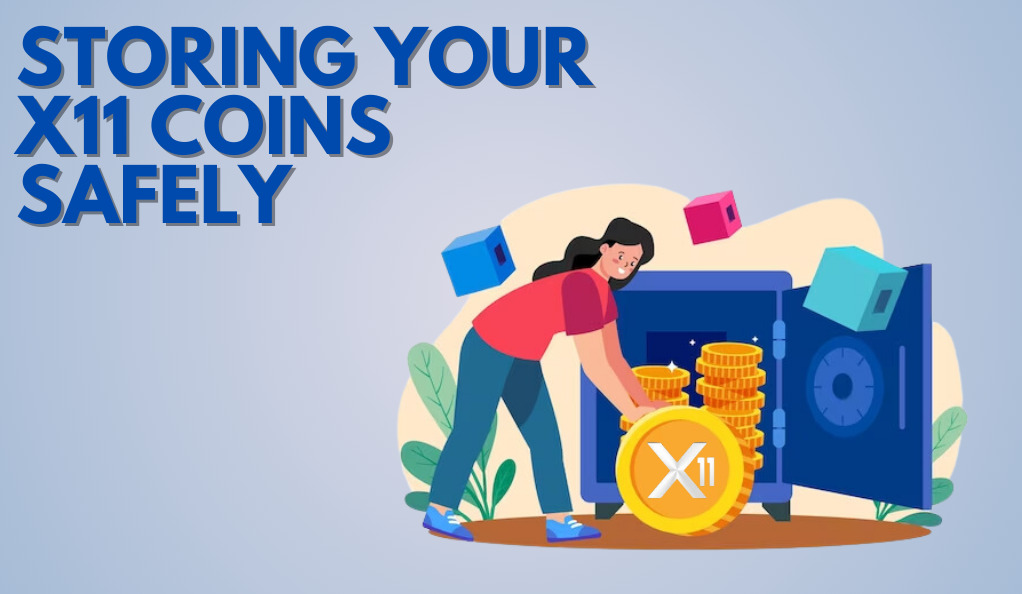
Once you’ve selected the right wallet for your X11 coins, the next crucial step is to ensure that you store your assets securely. Your chosen wallet is only as safe as your storage practices. Here are important steps to consider:
Create a Strong and Unique Password
Start with a strong, unique password for your wallet. Avoid using easily guessable passwords and consider using a passphrase with a combination of letters, numbers, and special characters. Use a password manager to generate and store complex passwords securely.
Enable Two-Factor Authentication (2FA)
Whenever possible, enable 2FA for your wallet. This adds an extra layer of security by requiring a secondary authentication method, such as a one-time code sent to your mobile device, in addition to your password.
Back Up Your Wallet
Regularly back up your wallet’s data. This ensures that you can recover your X11 coins in case of device loss or failure. Store backups in multiple secure locations, such as encrypted external drives or hardware wallets.
Secure Your Private Keys
Your private keys are the keys to your X11 coin holdings. Never share them with anyone, and store them offline in a secure location. Consider using a physical vault or safe deposit box for maximum security.
Beware of Phishing Attempts
Be cautious of phishing attempts. Scammers may try to trick you into revealing your private keys or wallet information through fake emails or websites. Always double-check website URLs and email sender addresses before entering any information.
Regularly Update Your Wallet Software
Keep your wallet software up to date. Developers often release security patches and updates to address vulnerabilities. Using outdated software could make your wallet more susceptible to attacks.
Practice Caution in Public Wi-Fi Networks
Avoid accessing your wallet or making transactions while connected to public Wi-Fi networks. These networks may not be secure, and your data could be intercepted by malicious actors.
Use Multiple Wallets for Different Purposes
Consider using multiple wallets for different purposes. For instance, use one wallet for long-term storage and another for day-to-day transactions. This minimizes your exposure to potential threats.
By implementing these practices, you’ll significantly enhance the security of your X11 coin investments. Remember that while technology can provide robust security, your diligence and proactive approach to safety are equally essential.
Advanced Security Measures
In addition to choosing the right wallet and implementing basic security practices, advanced security measures can further fortify your defense against scams and theft in the realm of X11 coin investments. Here are some advanced strategies to consider:
- Cold Storage: Cold storage involves keeping your X11 coins entirely offline. This method provides the highest level of security. Consider using hardware wallets or creating a paper wallet for your long-term holdings. These assets remain impervious to online threats, such as hacking or phishing attacks.
- Multisignature Wallets: Multisignature (multisig) wallets require multiple private keys to authorize transactions. For example, you might set up a 2-of-3 multisig wallet, which requires two out of three private keys to approve a transaction. This adds an extra layer of security and reduces the risk of a single point of failure.
- Hardware Security Modules (HSMs): Hardware Security Modules are dedicated devices designed to protect cryptographic keys and perform secure transactions. They are often used by businesses and high-net-worth individuals for an extra layer of protection.
- Security Audits: Regularly conduct security audits of your wallet and X11 coin portfolio. This involves reviewing your security practices, verifying the integrity of your assets, and ensuring your wallet software is up to date. Some cryptocurrency projects offer bug bounty programs, encouraging users to report vulnerabilities for rewards.
- Geographic Redundancy: Consider geographic redundancy by storing backups of your wallet and private keys in multiple physical locations. This ensures that a localized disaster, such as a fire or theft, won’t result in the complete loss of your assets.
- Stay Informed About New Threats: The cryptocurrency landscape is dynamic, with new threats emerging regularly. Stay informed about the latest scams and security vulnerabilities through reputable news sources and online communities. Knowledge is a powerful defense.
- Secure Your Recovery Seed: If you use a hardware wallet, it typically provides a recovery seed—a list of words that can restore your wallet in case of loss or damage. Secure this seed in multiple physical locations, making sure it’s inaccessible to others.
- Consider Using Privacy Coins: Privacy-focused cryptocurrencies like Monero (XMR) offer enhanced anonymity features. If privacy is a concern, consider diversifying your holdings with privacy coins.
Conclusion
In the ever-evolving realm of cryptocurrencies, securing your X11 coins is paramount. This guide has equipped you with a comprehensive set of strategies to safeguard your investments. You’ve gained insights into recognizing common scams, selecting the right wallet, practicing secure storage, and implementing advanced security measures. By staying informed, remaining vigilant, and proactively protecting your assets, you not only shield your financial interests but also contribute to the overall security and trustworthiness of the crypto ecosystem. Remember, your commitment to security, coupled with technology, is your best defense against scams and theft in the crypto world.
As you embark on your crypto journey, remember that knowledge is your most potent ally. Regularly update your security practices, seek advice from experts when needed, and never underestimate the value of due diligence. Your dedication to securing your X11 coins not only ensures your peace of mind but also strengthens the foundation of trust in the exciting and dynamic world of cryptocurrencies.
At axerunners.com, our goal is to furnish well-rounded and trustworthy information regarding cryptocurrency, finance, trading, and stocks. Nonetheless, we avoid providing financial advice and instead encourage users to conduct their own research and meticulous verification.
Read More
